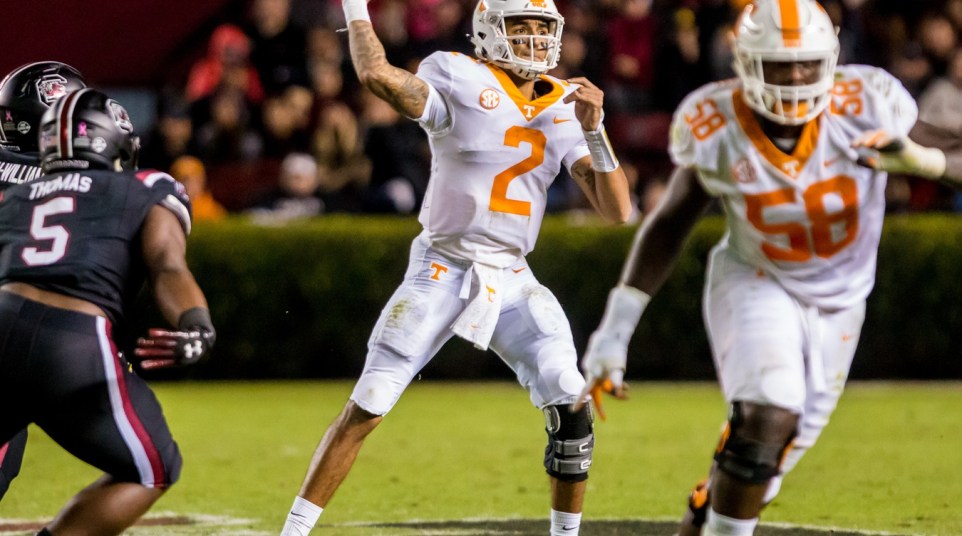
Tennessee's loss against South Carolina was incredibly revealing
A win over South Carolina on Saturday would have been an incredible building block for Tennessee. Instead, the 27-24 loss was a reminder of the Vols’ various shortcomings.
There was every reason to think Tennessee would notch its second SEC road win when it led the Gamecocks 24-16 late in the third quarter. UT was seemingly in control. Imagine how much a win would have changed how the Vols would be judged. Beating South Carolina would have accounted for two road wins over SEC teams that had preseason aspirations of winning a championship. Instead, the Vols lost their fifth game of the season and fell to 3-5 overall and 1-4 in the SEC.
It has been well-documented that the Vols are regularly playing “up” to their competition. Like every SEC opponent they have played so far this season, the Vols’ roster isn’t comparable to their competition. Tennessee certainly has some talent, but its roster can’t take many hits. The Vols’ final offensive play against South Carolina was proof of that when sophomore offensive tackle Marcus Tatum was beaten for a sack that forced a fumble by quarterback Jarrett Guarantano. Tatum was only playing because UT’s best offensive lineman, Tre Smith, was sidelined with a recurrence of blood clots in his lungs. Tennessee simply isn’t in a position to easily overcome a loss like Smith.
Imagine UT’s plight heading into the South Carolina game. Smith hasn’t been dominant this season as he had been in the past and, yes, he’s probably more suited to play guard than tackle. However, Smith has been able to hold down the second most important position in football, left tackle. The Vols prepared the entire week as if Smith would be able to play until they found out he wouldn’t be available after practice on Wednesday. That means the Vols spent most of their entire week of preparation for the Gamecocks as if Smith would play a key role.
Losing a player like Smith would have been a crippling blow for any SEC team not clad in Crimson. However, the Vols overcame his departure on Saturday— for the most part.
It would be incredibly easy to question first-year coach Jeremy Pruitt for some in-game decisions. The most delible was Pruitt’s decision to pass on a 53-yard field goal attempt with less than 10 minutes left in the game with the score tied. Instead of attempting to take the lead via kicker Brent Cimaglia’s kicking leg, Pruitt chose to go for the first down. That didn’t work. Guarantano’s fourth-and-7 pass attempt was batted down and what little momentum the Vols had left was gone.
The decision was a gamble. And it wasn’t a smart one. If Pruitt thought Cimaglia couldn’t make the field goal, the Vols should have punted. A coach has to learn how not to lose before he can learn how to win. That’s a favorite saying of Pruitt’s boss, Tennessee athletic director Phillip Fulmer.
Despite the consequences nor the reasoning, Pruitt’s aggressiveness should be appreciated. Pruitt realized that Tennessee had more to win in that situation than it had to lose. If the Vols had converted and won the game, they would have raised some eyebrows around the SEC. As it stands, the Vols stood toe-to-toe with an opponent that many thought could win the SEC East at the beginning of the season. Considering the Vols’ current standing, the latter isn’t such a bad thing.
At some point, however, Pruitt will have to coach as if he has a championship-contending team. He’ll need to avoid regrettable coaching mistakes that could undermine his team. No, Pruitt shouldn’t be considered a Derek Dooley or a Butch Jones for his key decisions on Saturday. However, it’s fair to say that he is what he is — a career assistant who is finally a head coach for the first time in his career.
There’s some growing pains to go through there, especially when it comes to decision-making in critical moments.
